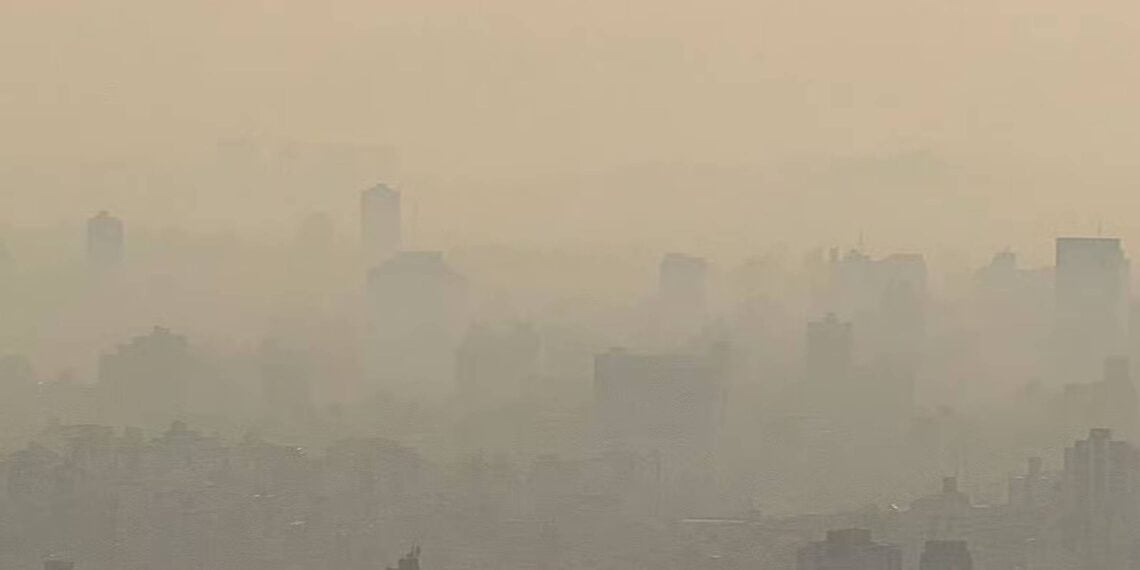Burnings and Smoke Clouds Covering Belo Horizonte
Belo Horizonte and its metropolitan area have been suffering from persistent burning and smoke for three consecutive days, drawing significant concern from residents and authorities alike. The recent climatic conditions, marked by an extended dry spell, have not only facilitated the emergence of this smoke but have also exacerbated the situation with recorded instances of burning across the city and its surroundings.
Understanding the Current Situation
On the latest reports, the capital of Minas Gerais is battling against a cloud of smoke, stemming from a combination of factors. According to Anete Fernandes, a meteorologist at the National Institute of Meteorology (Inmet), this smoke results from dust, pollution, and the smoke from surrounding wildfires. This conjunction of elements has led to severe air quality issues, causing residents to face health risks.
The Climatic Factors at Play
The prolonged drought is at the core of the smoke crisis currently affecting Belo Horizonte. Throughout this latest episode, the thermometer has registered temperatures ranging from 31°C to 35°C, with humidity levels plummeting below 20%. The meteorological conditions have created an arid environment, making it increasingly difficult for the city’s inhabitants to breathe clean air.
Key data points:
- Temperature Range: 31°C to 35°C
- Humidity Level: As low as 17%
- Days Without Rain: Nearly 140 days
These sharp climatic conditions reveal how severe drought impacts air quality, perpetuating a "Red Alert" scenario. The high temperatures combined with low humidity create a "critical" state for public health, with heightened risks of respiratory diseases and acute headaches reported by health organizations.
Health Risks Associated with Poor Air Quality
The current air quality in Belo Horizonte presents numerous health risks for its inhabitants. The combination of heat, smoke, and pollen may lead to more than just temporary discomfort; chronic issues can surface, particularly among vulnerable populations such as the elderly and those with existing respiratory conditions.
Health Recommendations
In light of the dire conditions and the observed effects on public health, authorities have issued numerous recommendations to residents. These include:
- Stay Hydrated: Increase water intake throughout the day.
- Eat Light: Prefer fresh meals focusing on fruits and salads rather than heavy or fried foods.
- Sleep Comfortably: Make sure your sleeping space is well-ventilated and consider using humidifiers.
- Limit Outdoor Activities: Avoid strenuous activities, especially during peak sun hours (10 AM to 5 PM).
- Maintain Hygiene: Opt for lukewarm showers and include moisturizers to combat skin dryness.
- Health Precautions: Seek medical advice immediately if respiratory problems arise.
- Report Fires: Call the authorities (Corpo de Bombeiros) in case of wildfires or any smoke-related emergencies.
The Importance of Community Awareness
The community’s awareness regarding sudden weather changes and resultant dangers significantly reduces alarming outcomes. Belo Horizonte’s citizens can receive alerts about environmental hazards, including heavy rain, hail, and forest fires, through local communications channels.
The Role of Authorities
Belo Horizonte’s firefighting and defense agencies are actively combating the fires. Just days ago, major wildfires were reported, including one affecting the Jardim Vitória neighborhood, where flames dangerously approached residential areas. The combined effect of high winds, intense heat, and low humidity posed significant challenges, but swift action by emergency responders helped control the situation effectively.
Current Wildfire Statistics
- Incidents Reported: Over five rapid occurrences within a 12-hour frame last Sunday alone.
- Fire Fought: A significant fire was quelled in a populous area but efforts were strained due to environmental conditions.
Looking Ahead: Environmental and Climatic Predictions
The dry mass of air hovering over Belo Horizonte is expected to maintain low humidity levels for the foreseeable future, making conditions ripe for continued wildfires. The World Health Organization (WHO) suggests humidity levels should be around 60% for optimum health, a stark contrast to the present figures ranging from 15% to 18%.
Anticipated Weather Trends
Meteorologists have indicated that this pattern could persist throughout the month, compounding the adverse effects on both public health and ecological systems. The last significant rainfall event occurred on April 14, leaving the region deprived of moisture for an extended period.
Strategies for Mitigating Future Incidents
To address the increasing frequency of wildfires and compromised air quality, a multifaceted strategy is essential. This may include the following:
- Regional Fire Management Plans: Enhanced strategies for wildfire prevention and management.
- Public Awareness Campaigns: Increased education on the risks of fire-setting and pollution.
- Restoration Projects: Initiatives aiming to recover affected ecosystems to prevent future eruptions of fires.
- Scientific Research: Additional studies to assess the long-term effects of these conditions on public health and ecology.
Conclusion
The current smoke and burning crisis in Belo Horizonte illustrate the profound effects of climate on urban health and safety. As this situation unfolds, it underscores the need for combined efforts from both authorities and the community to manage environmental risks effectively.
Navigating out of this challenging scenario not only requires compliance with health measures but also demands proactive engagement from citizens and institutions to foster awareness and readiness against future climatic anomalies. As Belo Horizonte continues to experience these harsh conditions, the city’s resilience in facing these urban environmental challenges will be paramount.
